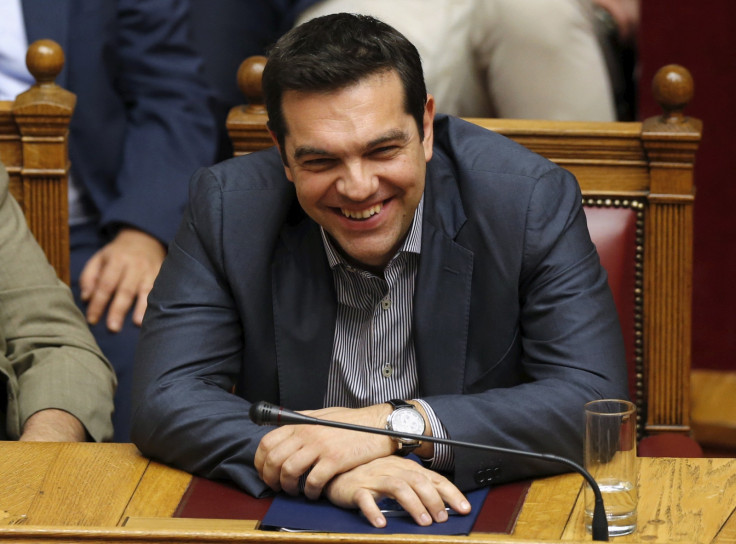Greek debt crisis: How is Greece going to spend its €86bn rescue package?

Greece has struck a deal reckoned to be worth €86bn to €87bn over three years, after agreeing to a new €50bn privatisation of assets fund.
The value of the rescue package may reflect accumulating damage done to the country's financial system; the €50bn privatisation plan, a condition Germany absolutely insisted upon, is being called an improvement. It could not really be worse than the previous situation.
Half of this, €25bn, will be put towards recapitalisation of the banks, while another €12.5bn will be spent on reducing the debt-to-GDP ratio. The remaining €12.5bn will be spent on an economic stimulus plan.
Emergency Liquidity Assistance from the ECB will most likely stay in place until at least Wednesday, pending Greek ability to legislate the list of prior actions
The Eurogroup said €10bn was needed "immediately" to recapitalise the banks, with a further €12bn needed in the next month.
The draft statement, which was being negotiated over the weekend, was bookended with a possible Grexit, another innovation on previous engagements called for by the Germans.
Oxford Economics analysts Dr James Nixon and Ben May said: "In the end, the final stumbling block proved to be the demand for Greece to offer up some form of collateral as a guarantee for reneging on the deal at a later date.
"Emergency Liquidity Assistance from the ECB will most likely stay in place until at least Wednesday, pending Greek ability to legislate the list of prior actions.
"In the interim, the Eurogroup will meet again tonight to discuss some means of financing Greece in the short run until such time as an ESM loan facility is agreed.
"Greek banks will therefore remain closed although there are serious doubts about their ability to remain solvent to Wednesday."
Greek assets
Greek authorities will invite an independent body to assess the price of assets sold and will investigate the best way to further increase the independence of TAIPED, the country's existing privatisation fund, with the involvement of the European Commission.
Valuable Greek assets – the €50bn condition of the deal – are to be transferred to an existing external and independent fund such as the Institution for Growth in Luxembourg, to be privatised over time and decrease debt, said the Eurogroup statement.
The fund would be managed by the Greek authorities under the supervision of the relevant European institutions, it said.
But there is some concern over the value of said assets. Oliver Salman, analyst at Oxford Economics, told IBTimes UK: "I'm not sure what the value of Greek assets is. I don't think they are sure either."
I'm not sure what the value of Greek assets is. I don't think they are sure either
If an agreement is struck, the ESM loan facility will have to be agreed by six European parliaments including Germany, the Netherlands, Finland, Austria, Slovakia and Estonia.
For Greek Prime Minister Alexis Tsipras, the main wins appear to be a discussion of debt refinancing and the agreement to finance Greece for another three years.
German Chancellor Angela Merkel appears to have been seriously constrained by the more hawkish members of her government, who have moved to flex Germany's muscles and assert their version of rule-based monetary union.
As set out in the finance ministers' draft statement, Athens has committed to pass legislation on value added tax, pensions and creating an independent institution to tackle fiscal reforms before 16 July.
Greece's debt mountain currently stands at €320bn. The European bailout is valued at €240bn. The country has seen a 25% fall in GDP since 2010 and currently has an unemployment rate of 26%.
© Copyright IBTimes 2024. All rights reserved.






